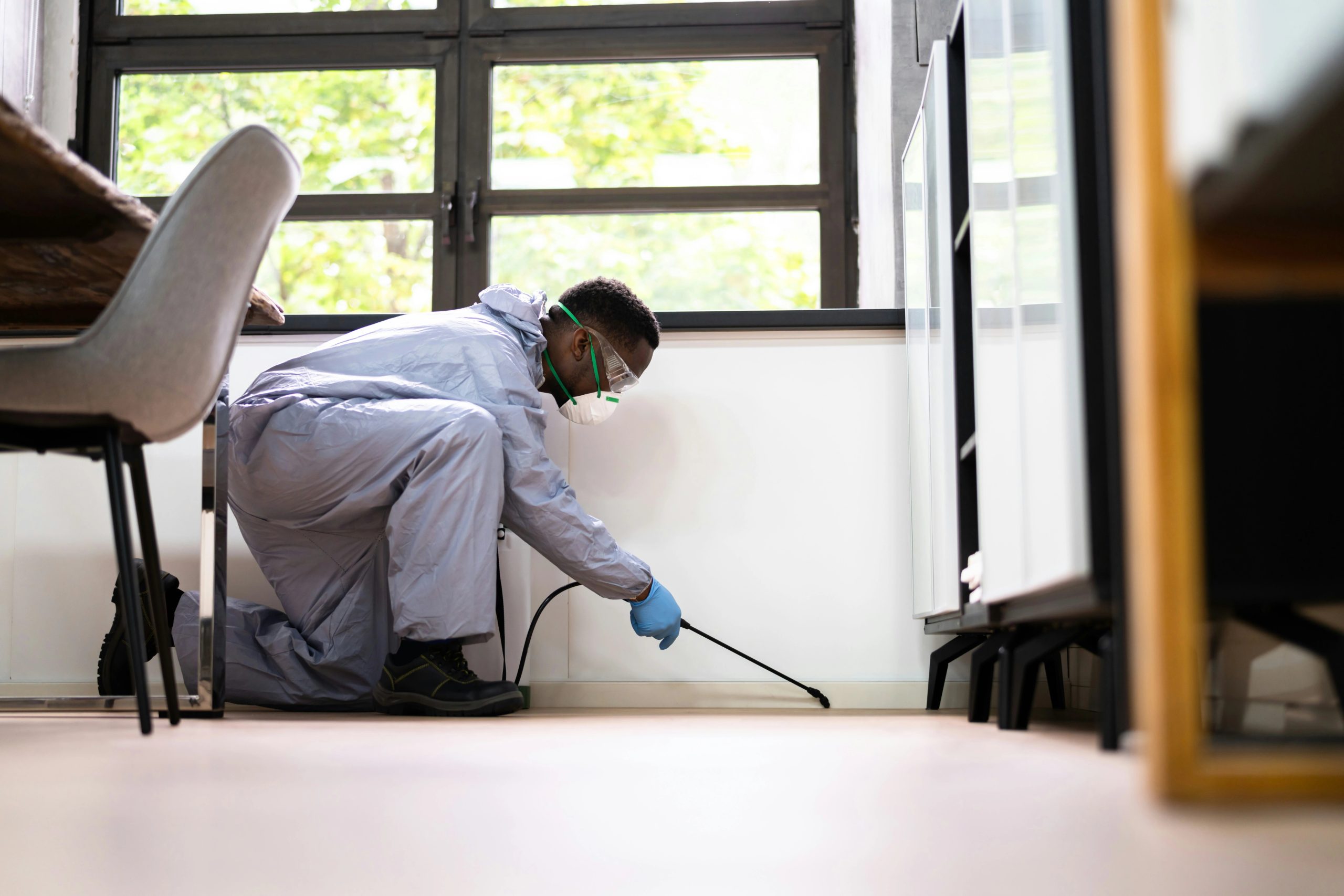Ensuring a pest-free environment in rental properties is crucial for maintaining habitable living conditions. But are landlords responsible for pest control in Texas? Understanding the nuances of pest control laws and responsibilities can help tenants and landlords alike navigate this essential aspect of property management.
Are Landlords Responsible for Pest Control?

In most cases, landlords are responsible for pest control. This means they must ensure their properties are free of infestations at the start of a tenancy and take necessary measures to maintain this condition. However, the specific responsibilities can vary depending on state and local laws, as well as the terms of the lease agreement.
Pest Control Apartment Laws
Each state and city may have different regulations regarding pest control. Generally, landlords are required to maintain a habitable living environment, which includes pest control. Tenants are expected to keep their living spaces clean and report any pest issues promptly to ensure timely intervention.
Texas Property Code 92 Pest Control Responsibilities
Under the Texas Property Code 92, landlords are required to make repairs or remedy any condition that affects the physical health or safety of an “ordinary tenant.” This includes addressing pest problems that can compromise the habitability of the property.
Landlord Responsibilities: Is a Landlord Responsible for Pest Control?
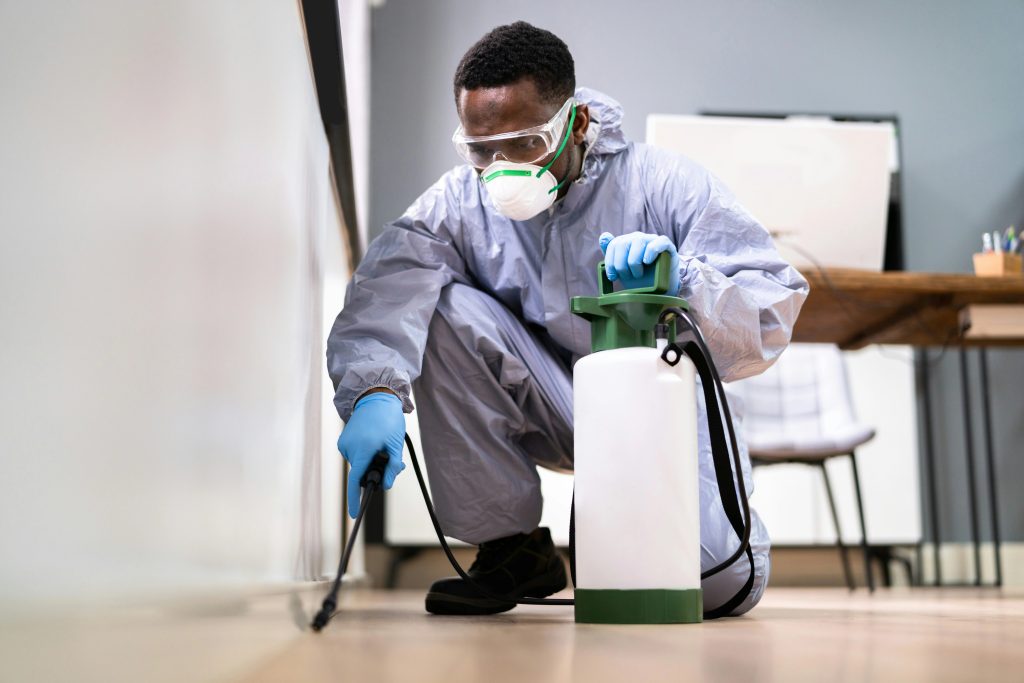
Landlords have a fundamental duty to ensure their rental properties are safe, habitable, and free from pest infestations.
Initial Pest Control
At the start of a tenancy, landlords are responsible for ensuring that the rental unit is free of pests. This typically involves conducting a thorough inspection and, if necessary, hiring a professional exterminator to treat the property.
Ensuring the unit is pest-free before a new tenant moves in sets a standard for cleanliness and habitability, which is crucial for maintaining a positive landlord-tenant relationship. Additionally, providing documentation of any pest control measures taken can help address future disputes.
Ongoing Maintenance
Ongoing maintenance is essential for preventing pest infestations in rental properties. Landlords should implement regular pest control treatments and inspections, focusing on areas prone to pest activity such as kitchens, bathrooms, and basements.
This proactive approach helps identify and address potential issues before they become severe, ensuring the property remains safe and habitable. Regular maintenance also includes sealing entry points, repairing leaks, and keeping common areas clean, which are all vital steps in preventing pests.
Responding to Issues
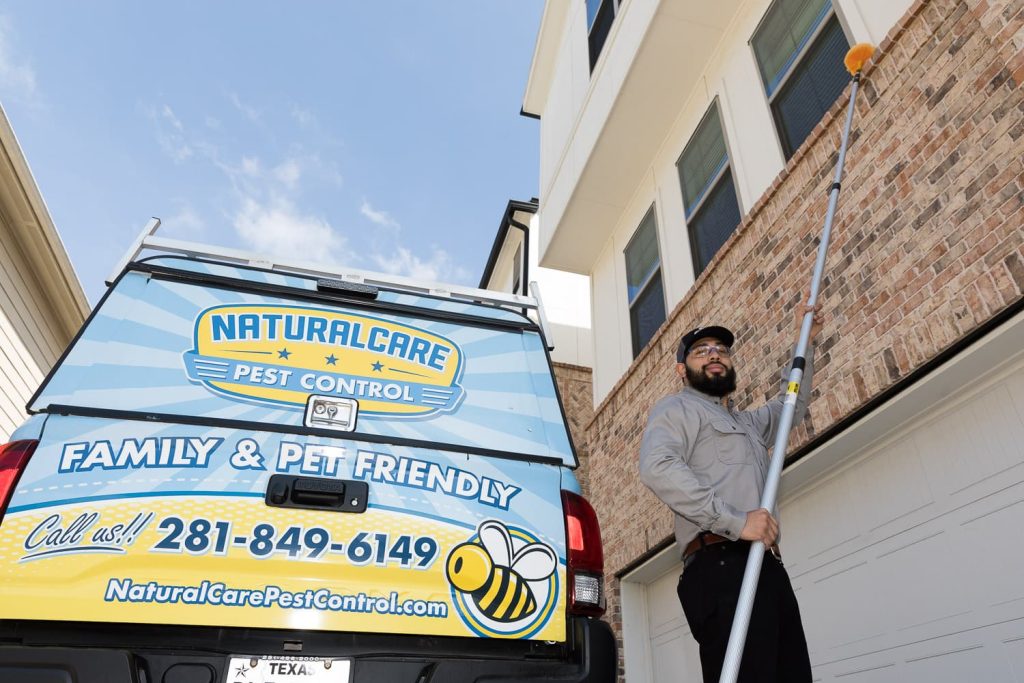
When tenants report a pest problem, landlords must respond promptly and effectively to address the issue. This involves assessing the situation, hiring a professional pest control service if necessary, and taking appropriate measures to eliminate the pests.
Quick action not only resolves the immediate problem but also prevents it from escalating and causing more significant damage or health risks. Clear communication with tenants throughout the process ensures they feel heard and supported, fostering a cooperative relationship and minimizing potential disputes.
Tenant Responsibilities: Is the Tenant Responsible for Pest Control?
Tenants have essential responsibilities to maintain a clean living space and promptly address and report any pest issues to ensure a healthy and habitable environment.
Maintaining Cleanliness
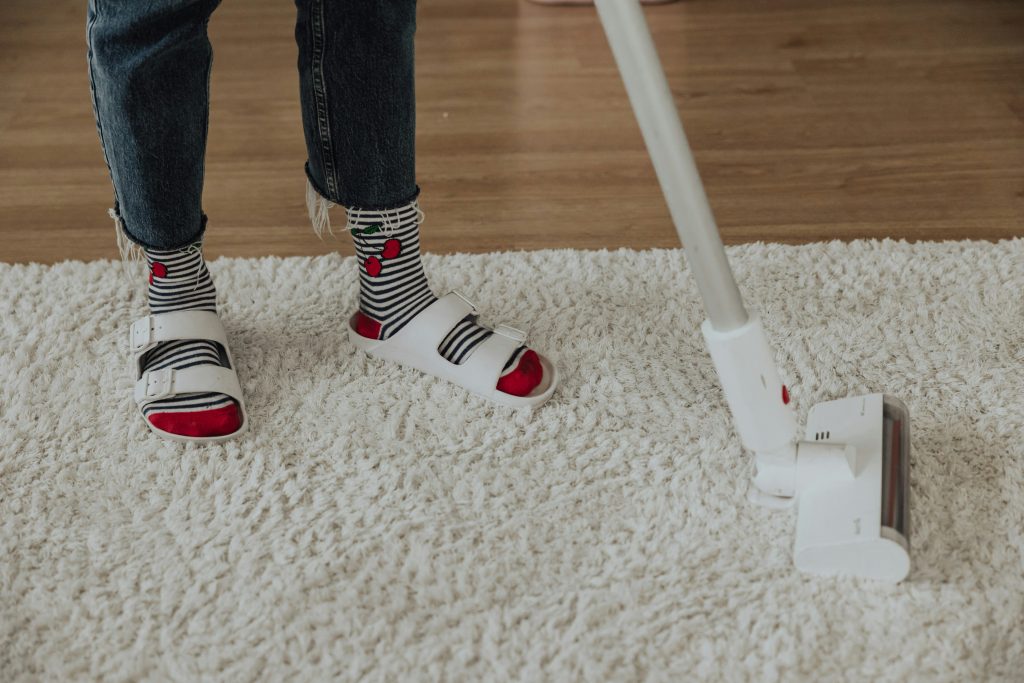
Maintaining cleanliness is a primary responsibility of tenants to prevent pest infestations. This involves regular cleaning, proper disposal of garbage, and ensuring food is stored securely. Keeping the living area free of crumbs, spills, and clutter reduces the likelihood of attracting pests such as ants, cockroaches, and rodents.
A clean environment not only promotes better health and hygiene but also demonstrates the tenant’s commitment to their rental agreement and helps maintain a positive relationship with the landlord.
Reporting Problems
Promptly reporting pest problems to the landlord is another critical responsibility for tenants. As soon as signs of an infestation are noticed, such as droppings, damage to property, or the pests themselves, tenants should notify their landlord.
Early reporting allows for swift action to be taken, preventing the issue from worsening and potentially causing more significant damage or health risks. Clear and timely communication about pest issues ensures that they are addressed efficiently and reinforces the tenant’s role in maintaining a pest-free environment.
Preventive Measures
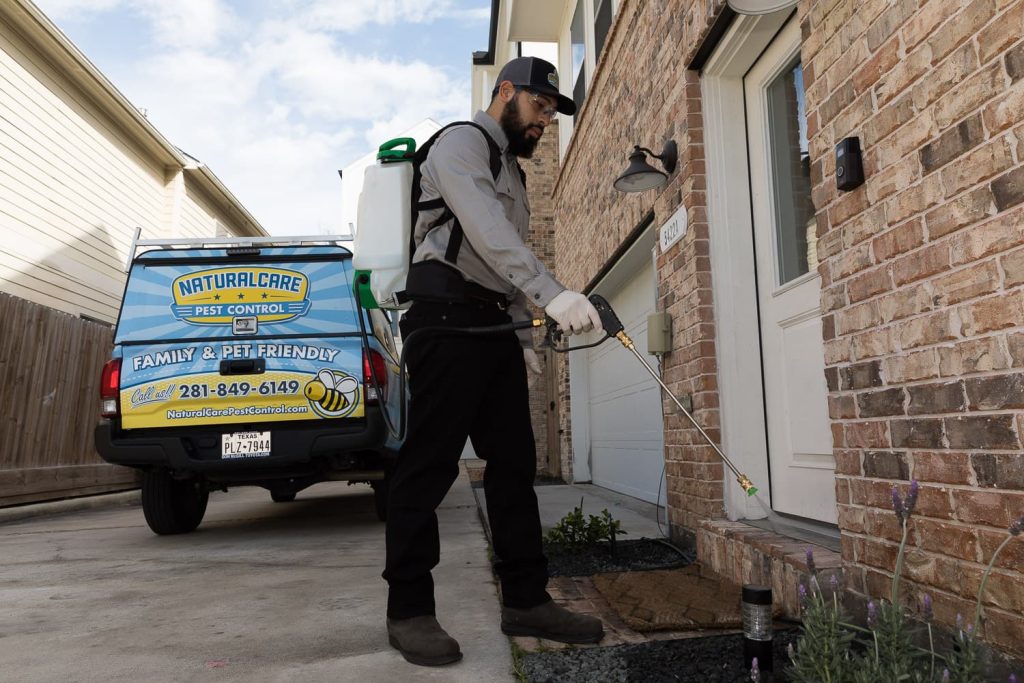
Tenants should also take proactive steps to prevent pest infestations. This includes sealing any small cracks or gaps around windows, doors, and plumbing, which can serve as entry points for pests. Regularly inspecting the living space for potential problem areas, such as moisture build-up or exposed food, is essential.
Additionally, using natural deterrents like essential oils or diatomaceous earth can help keep pests at bay. By implementing these preventive measures, tenants can significantly reduce the risk of infestations and contribute to a healthier living environment.
Common Pests and Legal Considerations
Understanding the specific responsibilities for common pests and the associated legal considerations is crucial for both tenants and landlords to maintain a habitable living environment.
Roaches in Apartment Law
Cockroaches are a common issue in rental properties. Under most roaches in apartment laws, landlords are responsible for addressing infestations, especially if they pose a health risk. However, if tenant negligence leads to a roach problem, the tenant may be held accountable.
Bed Bugs
Bed bugs are another challenging pest. Landlords typically must ensure rental units are free of bed bugs at the start of a lease. However, if an infestation is traced back to the tenant or their guests, the tenant may be responsible for treatment costs.
Termites

Termites can cause significant structural damage. In most cases, landlords are responsible for termite control and repairs. Tenants can potentially sue their landlord for termites if the infestation is not addressed promptly, leading to property damage.
Pest Control Reimbursement and Legal Actions
Tenants may seek pest control reimbursement from landlords if they incur expenses due to an untreated infestation. Documentation and clear communication with the landlord are essential in such cases.
Can You Sue Landlords for Pest Control?
If a landlord fails to address pest control issues, tenants may have legal recourse. They can sue their landlord for pest control to cover damages or force the landlord to take action.
Refusing Pest Control
Tenants may wonder, “Can I refuse pest control in my apartment?” While tenants can express concerns about the safety of pest control methods, they generally cannot refuse the necessary pest control measures required to maintain a habitable living environment.
Conclusion: Are Landlords Responsible for Pest Control?
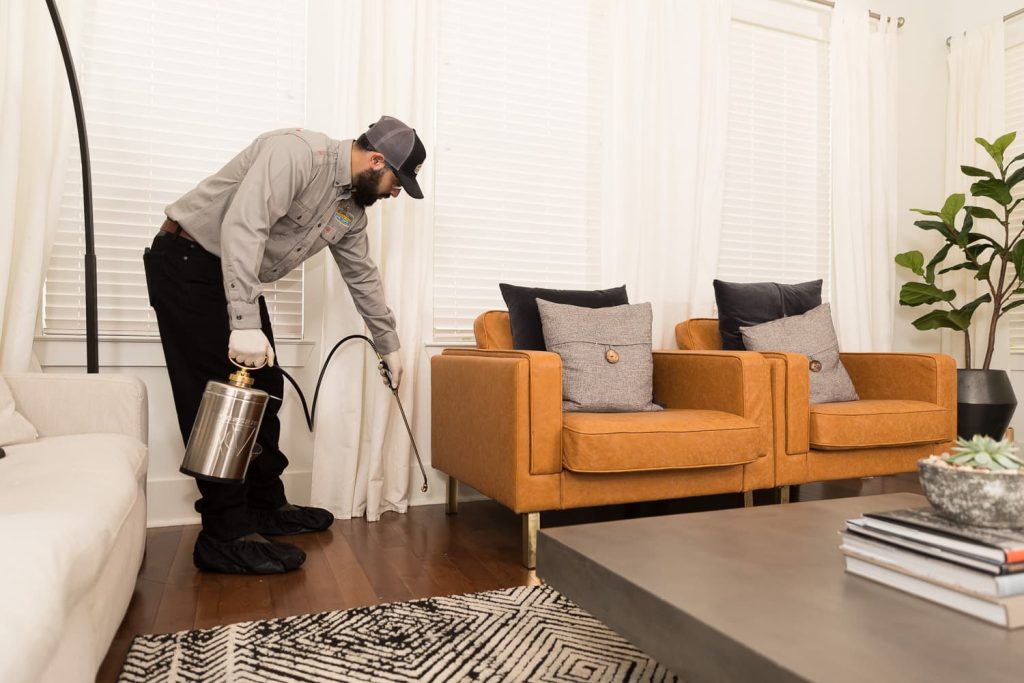
In conclusion, while landlords are generally responsible for ensuring that rental properties are free from pests and remain habitable, tenants also play a crucial role in preventing infestations through cleanliness and timely reporting of issues. The specific responsibilities can vary based on state laws and lease agreements, but clear communication and proactive measures from both parties are essential for effective pest management.
Understanding and adhering to these responsibilities helps maintain a healthy living environment and fosters a positive landlord-tenant relationship. For more information and expert assistance, contact NaturalCare Pest Control for eco-friendly pest control Houston Texas services.
FAQs About “Are Landlords Responsible for Pest Control?”
Can I Not Pay Rent If I Have Roaches?
If a landlord fails to address a significant roach problem, tenants in some states may withhold rent. However, it’s essential to follow legal procedures and document all communications.
Do Landlords Pay for Exterminators?
Yes, landlords typically pay for exterminators to address pest issues that affect the habitability of the rental property.
Is the Landlord Responsible for Pest Control?
In most cases, landlords are responsible for pest control to ensure the property remains habitable.
Are Tenants Responsible for Pest Control?
Tenants are responsible for maintaining cleanliness to prevent infestations. They may be held accountable for pest issues resulting from their negligence.
Can I Sue My Landlord for Termites?
Yes, tenants can sue their landlord if termite infestations are not addressed, leading to property damage.
Are Landlords Responsible for Exterminators in Texas?
Yes, under Texas law, landlords must ensure rental properties are free from infestations that affect habitability.
What Does Pest Control Apartment Laws Texas Say?
Texas laws require landlords to maintain habitable properties, including addressing pest control issues.

